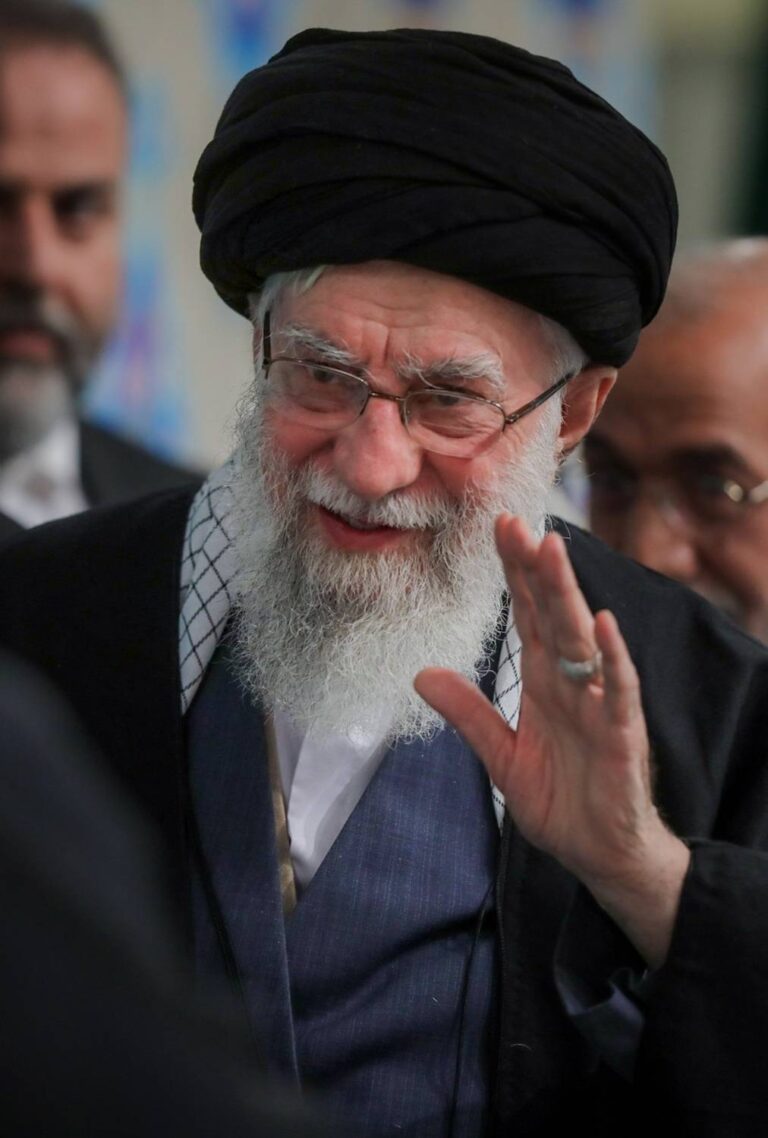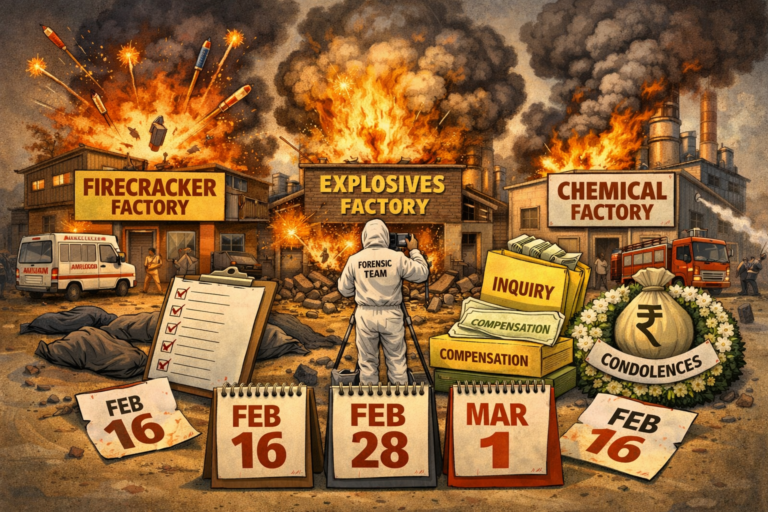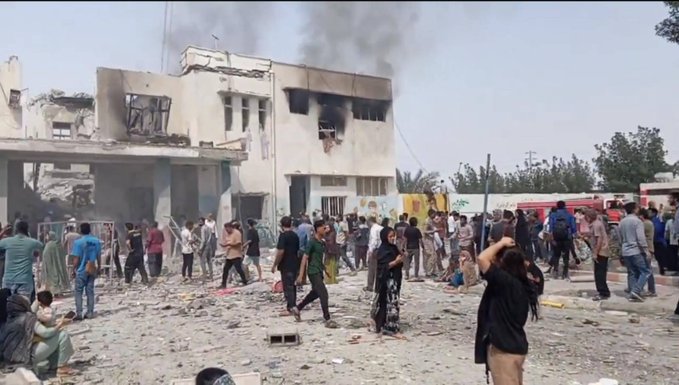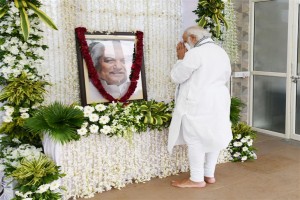
Prime Minister Narendra Modi pays tributes to former Gujarat Chief Minister late Keshubhai Patel on October 30
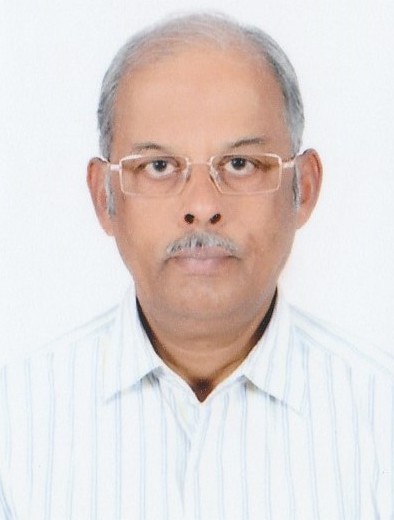 By Rathin Das*
By Rathin Das*
Patel power in Gujarat politics had died much earlier
Ahmedabad: With the demise of former Chief Minister Keshubhai Patel on October 29, 2020, it is the end of Patels as a political force in Gujarat. Many political analysts and columnists would be tempted to make such a sweeping statement on the death of the Patel patriarch at the age of 92.
The end of Patels as a decisive political force in Gujarat actually came much earlier, almost coinciding with RSS pracharak Narendra Modi replacing Keshubhai as Chief Minister in the state reeling under the rigours of rehabilitation following the devastating earthquake on January 26, 2001.
Fondly known as Keshu Bapa, the Patel patriarch had withered away politically much earlier, Thursday’s demise being only his physical end.
It is true that Keshubhai had been the undisputed leader of the Patels ever since the death of Chief Minister Chimanbhai Patel in 1994. But, then, even during the life-time of Chimanbhai, his hold among the Patels had started waning when the community’s participation in the anti-reservation agitation of the 1980s were effectively converted by the fledgling BJP into a pro-Hindutva campaign which swelled into massive support for the Somnath to Ayodhya Rath Yatra that brought the saffron party to the mainstream of Indian politics.
Keshubhai was never a leader of his community but only an RSS pracharak who happened to be a Patel, a farmer and also a cattle keeper — the attributes which made him a natural attraction for people aggrieved with the KHAM (Kshatriya, Harijan, Adivasi, Muslim) combination becoming decisively influential in Gujarat under the leadership of earlier Chief Minister Madhavsinh Solanki.
Slighted Patels aspiring to seize power, coupled with an under-current of emerging Hindutva culminating with the demolition of the Babri Masjid, also helped the BJP grow exponentially in Gujarat. Consequently, the Patels gravitated towards the BJP not because of Keshubhai but due to the ongoing Hindutva wave, the party’s pro-business attitude and also due to a growing anti-Congress sentiment in the state.
In the process, influential Patels provided the much required money, muscle power and logistics support to the RSS, VHP and BJP for all their Rath Yatras, election rallies and much else — not because of their love for Keshubhai but out of their affinity to the emerging Hindutva.
But, still, the Patels did get angry with the BJP when Keshubhai was forced to step down to make Narendra Modi the Chief Minister in October 2001. For next few months, the Patels’ loyalty remained split between their community bonhomie for Keshubhai unseated unceremoniously and their ideological affinity towards the BJP’s Hindutva which had become a force to reckon with by then.
This split loyalty of the Patels was short-lived as the 2002 Godhra train inferno and the three-month-long riots and communal tension obliterated all other factors and brought an aggressive Hindutva to the centre-stage of Gujarat politics.
Though Keshubhai was rehabilitated in the BJP by elevating him as party’s national vice president and also a Rajya Sabha member, it took him nearly a decade to realise that he had been effectively neutralised by a combination of rising Hindutva and media hype projecting Modi as messiah, first of Gujarat and then for whole of India.
Emergence of Modi as the supreme leader soon neutralised Patels as an influential community having nearly 14 per cent vote share simply because development and Hindutva started alternating as election planks.
Even though Keshubhai finally floated his Gujarat Parivartan Party (GPP) in 2012, his party effectively helped the ruling party by splitting all the anti-BJP votes between itself and the Opposition Congress. This arrangement was obviously brokered by the BJP’s parent organisation RSS with which Keshubhai never had strained relations.
Thus, Keshubhai was back in the BJP but fully neutralised and wings clipped, barely able to bargain a party ticket for his son Bharat for the assembly by-election which he lost. That was the final drowning of Patel power in the ripples of Hindutva which became powerful Modi wave sweeping away everything else, including common sense.
It was again this vacuum in Patel leadership which threw up a novice like Hardik Patel to espouse the cause of the community and Keshubhai remained a mute spectator. That was the time Patel power signed off in Gujarat, not on last Thursday when Keshubhai breathed his last.
*The writer is a senior journalist


